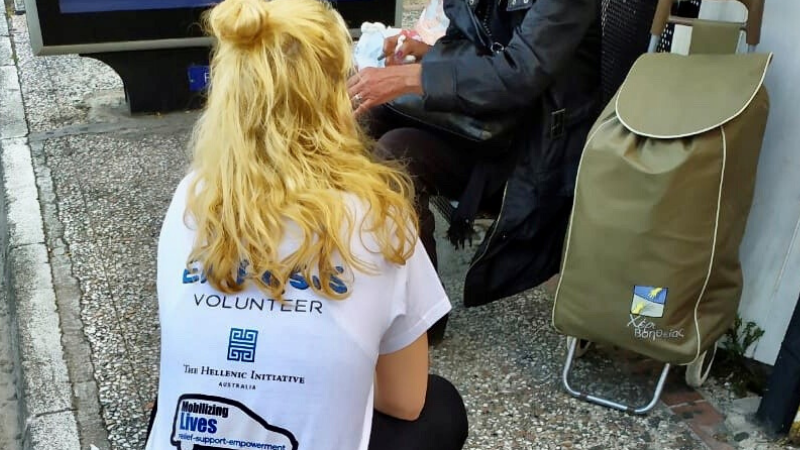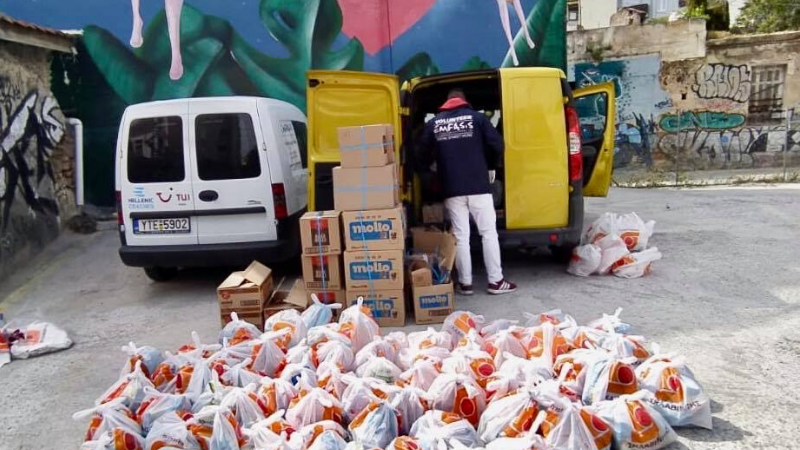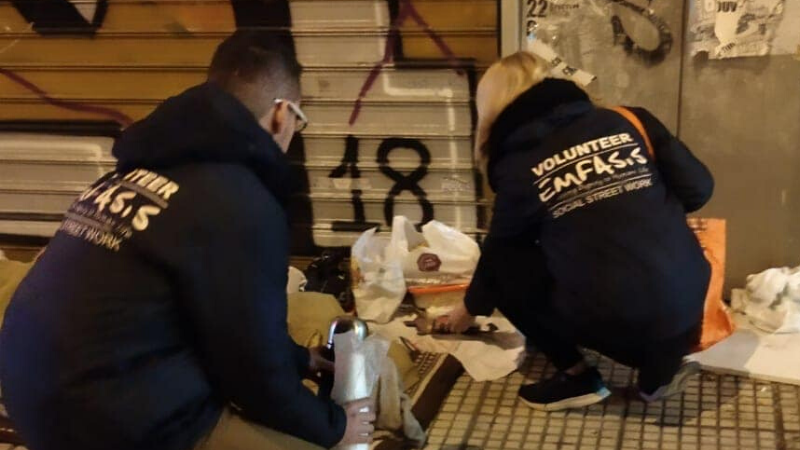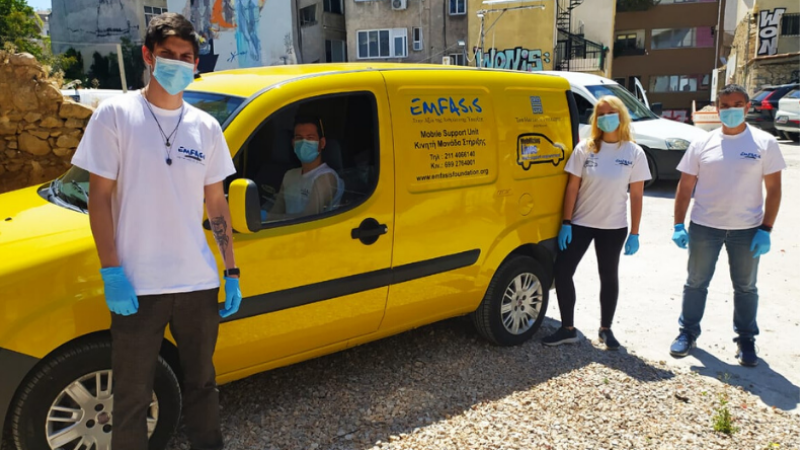The Hellenic Initiative Australia will be supporting more than 2100 homeless and rough sleepers in Athens and Piraeus, over the next 12 months through an AU$35,000 grant to Emfasis Foundation.
This is the third year that THI Australia is supporting the Mobile Support Units (MSU) – Mobilising Lives program, enabling Emfasis to provide critical outreach services at a time when there are increasing fears of a further rise in homelessness in Greece due to economic impact of COVID-19.
Read More: Hellenic Initiative Australia announces $10,000 grant to Emfasis Foundation for homeless
It follows a special AU$10,000 grant from THI Australia in May to support extra relief and emergency measures implemented by Emfasis in response to COVID-19.
Over the past 12 months, the number of people assisted by Emfasis increased by 35 percent. There was also a 60 percent increase in food items distributed, primarily due to spike in demand during the COVID-19 lockdown period, when the majority of social services were suspended.

The Hellenic Initiative Australia President, Nicholas Pappas AM, praised Emfasis for its ability to continuously respond and adapt to the changing needs of vulnerable populations.
“Through our partnership with Emfasis over the past three years, THI Australia has witnessed the MSU become a reliable, trusted and effective support for people experiencing multiple forms of homelessness, including many elderly people and destitute families,” Mr Pappas said.
“As well as providing relief items like food and survival kits, Emfasis’ follow-up care has been outstanding and has helped people find temporary housing and employment and receive essential medical care,” Mr Pappas said.

Emfasis co-founder Maria Karra says there has been an increase in the number of neighbourhoods where the two MSU teams operate regular shifts.
“As a result of THI Australia’s continued support, our consistent presence on the streets and neighbourhoods in the capital has been extended to cover 14 municipalities in the Attica prefecture, enabling us to support and empower more people,” she said.
“We aim to help people reintegrate into society and are particularly pleased that in the past year our streetworkers have assisted 23 people to find employment and another 25 with temporary accommodation while we continue to work on longer term solutions.”

According to 2019 data released this month by the Hellenic Statistical Authority (ELSTAT), 30 percent of Greeks were last year at risk of poverty and social exclusion, despite disposable incomes posting a small increase. At the height of the economic crisis in 2014 the figure had reached 36 percent.
There is growing concern that the effects of the financial hardship caused by COVID-19 will emerge over the coming months, particularly for those dependent on the tourism industry.
Since 2018, THI Australia committed $123,000 to the Emfasis, with the number of people assisted annually increasing from 900 to 2000.

Ms Karra says that despite efforts to revive the tourist season, it will not be sufficient to sustain the seasonal jobs market, particularly for less skilled workers.
“Many financially and socially vulnerable people, who are reliant on summer work, will find themselves with either no income or severely reduced income for an extended period of time,” she says.
“We have already received 30 percent more calls from families in despair who are unable to pay for their rent and face the risk of being evicted.
“The support from THI Australia remains more vital than ever,” Ms Karra said.
